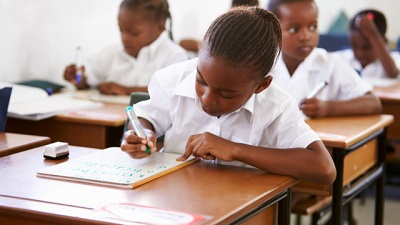By: Mpho Shelile
Maseru – Education is a fundamental human right and a cornerstone for individual and societal development. For girls in the remote areas of Lesotho, education is more than just learning, it is a pathway to empowerment, independence, and equality.
Despite this, many girls continue to face significant barriers to accessing quality education, often due to socio-cultural practices like early marriage.
However, Lesotho is making commendable progress in advocating for equal education rights for girls, emphasizing the transformative power of education in breaking the cycle of poverty and fostering sustainable development.
Education equips girls with the knowledge, skills, and confidence needed to make informed decisions about their lives. It enhances their economic opportunities, enabling them to participate fully in the labour market and contribute to national development. Educated girls are more likely to delay marriage and childbirth, make healthier choices for themselves and their families, and advocate for their rights and the rights of others. They also contribute more significantly to their communities, driving positive change across generations.
Research shows that each additional year of schooling can increase a girl’s future earnings by up to 20%. Moreover, education reduces the likelihood of child marriage by empowering girls with the awareness and confidence to resist societal pressures. In countries like Lesotho, where traditional practices often dictate a girl’s path, education becomes a crucial tool for challenging norms and promoting gender equality.
Despite the recognized importance of education, girls in remote areas of Lesotho face numerous obstacles that hinder their access to schooling. Early and forced marriages are particularly prevalent, often cutting short a girl’s education. Many families, driven by poverty, view marriage as a financial relief, overlooking the long-term benefits of education for their daughters.
Lack of infrastructure is another critical challenge. Remote areas often lack adequate schools, and those that do exist are frequently under-resourced, with limited access to qualified teachers, textbooks, and sanitary facilities. Additionally, the long distances girls must travel to reach school can be daunting and dangerous, leading many to drop out early.
Gender-based violence, both at home and on the way to or from school, is a significant barrier. Many girls face harassment and abuse, which discourages them from attending school. Without proper knowledge of their rights, these girls remain vulnerable and trapped in a cycle of poverty and marginalization.
Over the past decades, Lesotho has made notable strides in advocating for girls’ education. The government’s commitment to providing free primary education since 2000 has significantly improved school enrolment rates among girls. The introduction of the Gender and Development Policy in 2003 further underscored the government’s recognition of gender equality as essential to national development.
Various initiatives, often in partnership with international organizations like the WHO, UNFPA, UNDP, and World Vision, have been launched to address the barriers faced by girls in accessing education. These include programs aimed at reducing gender-based violence in schools, providing scholarships for girls from low-income families, and building more schools in remote areas. Awareness campaigns also educate communities about the value of educating girls and the harms of early marriage.
Civil society organizations, such as the Lesotho Girl Child Network and World Vision Lesotho, have played a pivotal role in advocating for girls’ rights to education. They conduct outreach programs in remote areas to inform girls and their families about their rights, provide support to victims of gender-based violence, and promote legal reforms to protect girls from early marriage and other harmful practices.
On October 11, 2023, during the celebration of International Day of the Girl, Mr. James Nkemba Chifwelu, National Director of World Vision Lesotho, highlighted specific actions taken to protect the rights of girls and boys in the digital world. He noted that World Vision has reached 7,000 adolescent girls, equipping them with knowledge on how to stay safe online through its “How to be Safe Online Model.”
For sustainable progress, advocacy for girls’ education must also address deep-rooted cultural norms and practices. Community involvement is vital in shifting mindsets and fostering an environment where girls are encouraged to pursue education. Traditional leaders, local educators, and religious figures play a significant role in promoting the value of education and challenging stereotypes that limit girls’ opportunities.
Engaging men and boys as allies in this effort is crucial. By raising awareness among them about the importance of girls’ education, communities can work towards breaking the cycle of gender inequality and creating a more supportive environment for all children.
While Lesotho has made commendable progress in advocating for girls’ education rights, there is still much to be done, especially in remote areas where early marriage and other socio-cultural practices continue to pose significant challenges. Ensuring that every girl, regardless of where she lives, has access to quality education is not only a matter of justice but also an investment in the country’s future.
Strengthening policies, increasing investment in education, enhancing community engagement, and fostering a culture that values girls’ education are essential steps towards achieving this goal. By doing so, Lesotho can unlock the full potential of its girls, creating a brighter and more equitable future for all.


